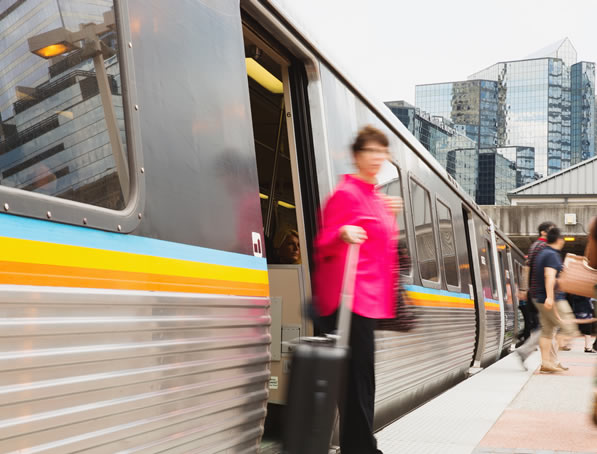
ATLANTA – Bolstered by federal coronavirus relief funds, MARTA’s governing board adopted a $1.2 billion budget Thursday without raising fares or laying off employees.
The transit agency received $298.6 million in federal aid from the CARES Act Congress passed in March as transit systems across the country began losing riders in droves because of the economic lockdown brought on by COVID-19.
After using $83 million of that money to help offset immediate coronavirus-related losses, MARTA rolled $150 million into the fiscal 2021 budget – which takes effect July 1 – and set aside $65.6 million for use in fiscal 2022.
“This has been an extraordinarily difficult time for transit,” MARTA General Manager and CEO Jeffrey Parker said Thursday. “We’ve provided safe, essential service while experiencing unprecedented revenue losses. This budget … reflects MARTA’s commitment to state of good repair and expansion while being mindful of future financial impacts of COVID-19.”
The budget, which is divided almost equally between operating and capital programing funds, includes 3% pay raises for MARTA employees and sets aside $20 million in a contingency fund for coronavirus-related expenses during the coming fiscal year, including personal protection equipment and emergency sick leave.
Also, MARTA has suspended merit increases for non-union employees, eliminated vacancies and increased its emphasis on reducing overtime costs.
As part of its service expansion efforts, the transit agency will invest $20 million in new natural gas-powered and electric buses and new bus transit centers and bus shelters in DeKalb and Clayton counties.
MARTA also expects soon to enter the environmental impact phase for plans to provide high-capacity transit in Clayton County, with options under consideration including heavy rail, light rail and bus-rapid transit.
The agency’s $599 million capital budget includes $62 million for a systemwide station rehabilitation program and repairs to large sections of aging tracks. Other rail system projects include a systemwide elevator and escalator rehabilitation program and the first installment of a long-range initiative that eventually will replace all of MARTA’s rail cars.